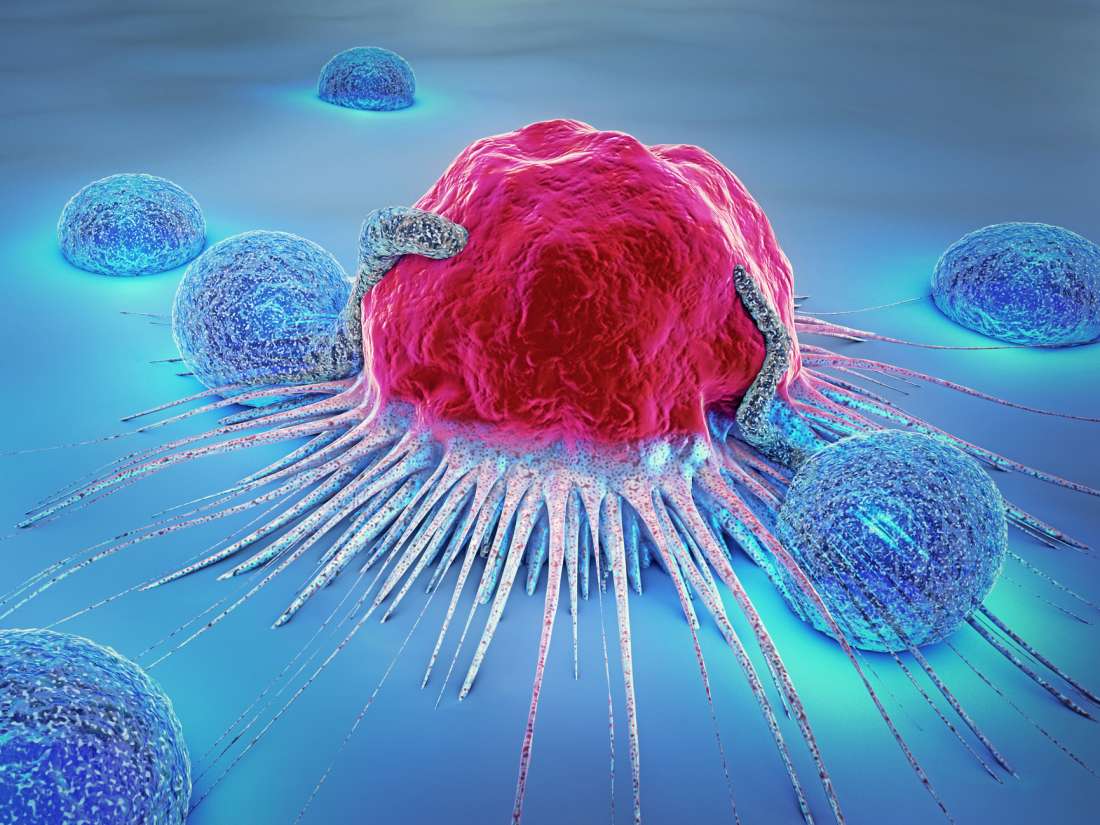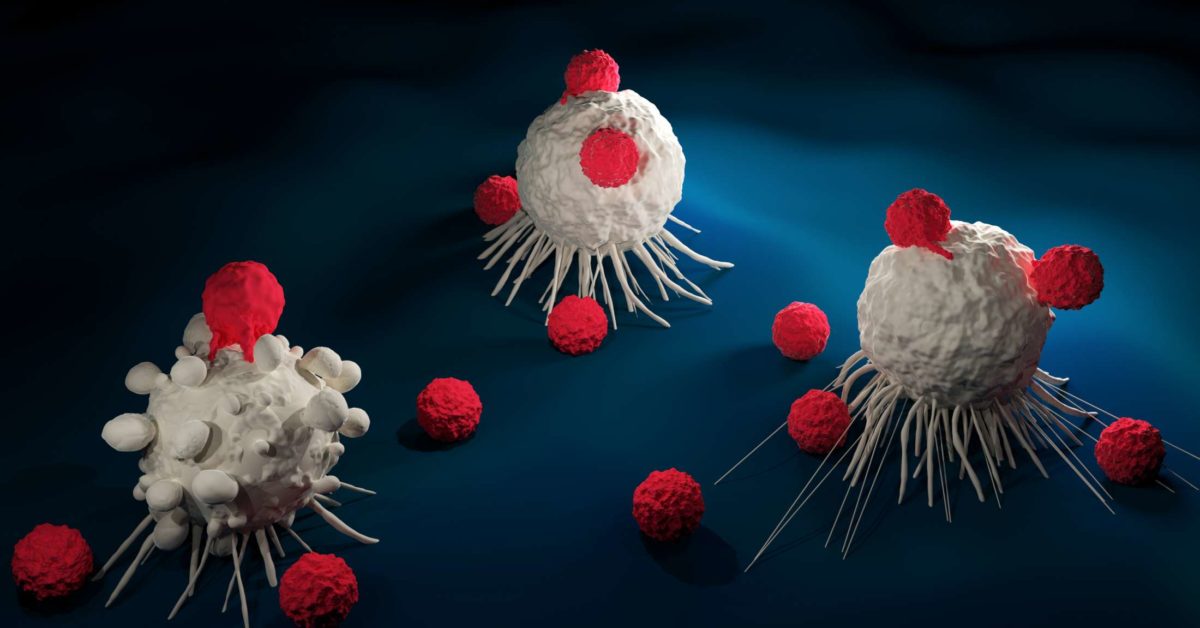Immune cells can surround a tumor and never know that it’s there. Immunotherapy is a standard treatment for some types of cancer.

'Supramolecule' helps immune cells 'eat up' cancer
Immunotherapy, though, offers several solutions.

Immune treatment for cancer. Cancer immunotherapy is a validated and critically important approach for treating patients with cancer. Immunotherapy uses the body's immune system to prevent, control and eliminate cancer. The cardiff university team discovered a method of killing prostate, breast, lung and other.
Through cancer immune editing, the immune system eliminates the more immunogenic cancer cells, thus promoting the development of clonal tumors and thereby decreasing the heterogeneity. The study is published in cancer immunology research, a journal of the american association for cancer research. Immunotherapy is a promising strategy to treat cancer by stimulating the body’s own immune system to destroy tumor cells, but it only works for a handful of cancers.
Washington [us], december 18 (ani): Immunotherapy is a treatment for some types of cancer. Receiving immune checkpoint inhibitor (ici) treatment within 90 days after radiation therapy (rt) is not associated with an increased risk of.
Stimulating the body’s immune system to attack tumors is a promising way to treat cancer. According to a new study by the mayo clinic, mrna therapy improves the response to cancer immunotherapy in patients, who weren’t responding to the treatment. Immunotherapy is a type of cancer treatment that boosts the body’s natural defenses to fight cancer.
One of the major obstacles in cancer treatment is the low response rate in patients who receive immune checkpoint inhibitors to prevent an immune response from being so strong that it destroys healthy cells in the body. If your treatment plan includes immunotherapy, knowing how it works and what to expect can often help you prepare for treatment and make informed decisions about your care. Adding messenger rna, or mrna therapy improves the response to cancer immunotherapy in.
This can be done in a couple of ways: Immunotherapy uses the body’s immune system to prevent, control and eliminate cancer. Immunotherapy uses the body's immune system to prevent, control and eliminate cancer.
Immunotherapy can boost or change how the immune system works so it can find and attack cancer cells. Cancer and tumors like to hide within your body, playing tricks on your immune system. Scientists are working on two complementary strategies to achieve that:
The study is published in cancer immunology research, a journal of the american association for cancer research. And it is in trials for other types of cancer. Immunotherapy uses our immune system to fight cancer.
Given the vast research and clinical investigation efforts dedicated to advancing both endogenous and synthetic immunotherapy approaches, there is a need to focus on crucial questions and define roadblocks to the basic understanding and clinical progress. Stimulating, or boosting, the natural defenses of your immune system so it works. Pembrolizumab and avelumab has been approved for adults and children with merkel cell cancer.
And “stepping on the gas,” or delivering molecules that jumpstart immune cells. Immunotherapy is treatment that uses certain parts of a person’s immune system to fight diseases such as cancer. It can tell your immune system to be more active in certain ways, and it can teach it how to find and kill cancer cells better.
Cancer immunotherapy is different from allergy immunotherapy. Immunotherapy is a medical treatment that helps your immune system target cancer cells specifically. Approved by the cancer.net editorial board, 05/2020.
Unlike cancer prevention vaccines, cancer treatment vaccines are designed to be used in people who already have cancer—they work against cancer cells, not against something that causes cancer. Immunotherapy is a type of treatment that helps your immune system more effectively fight diseases like cancer. Taking off the brakes that tumors put on the immune system;
Mrna technology has also been of interest to cancer researchers and physicians. And the immune system can recognise and kill abnormal cells. They are helpful in cancer treatment because cancer cells are different from normal cells.
Checkpoint immunotherapy is currently available in australia for some types of cancer. You might have immunotherapy on its own or with other cancer treatments. The treatment can hopefully help to fight a plethora of different autoimmune diseases, including allergies.
Immunotherapy helps to strengthen or restore the immune system’s ability to fight cancer. Cancer treatment vaccines are a type of immunotherapy that treats cancer by strengthening the body’s natural defenses against the cancer. Immunotherapy is treatment that uses a person's own immune system to fight cancer.
Cancer vaccines preventive vaccines can protect against cancer development, whereas therapeutic vaccines can stimulate immune responses against existing tumors. It works by helping the immune system recognise and attack cancer cells. Immunotherapy is a type of cancer treatment that assists the body's immune system to fight cancer.
Immunotherapy is sometimes called biological therapy. Immune system responds to mrna treatment for cancer: It uses the immune system to find and kill cancer cells.
Immunotherapy is a cancer treatment that helps your own immune system beat cancer. In contrast, the lack of immune selection likely increases the neoantigen heterogeneity. While chemotherapy works to kill cancer cells, immunotherapy aims to boost the body's own immune system to fight cancer.
Treatment with immune checkpoint inhibitors is approved for some patients with skin cancer: That’s different than traditional chemotherapy, which uses. It uses substances made by the body or in a laboratory to improve how your immune system works to find and destroy cancer cells.
Pembrolizumab and cemiplimab has been approved for some patients with cutaneous squamous cell cancer.